Note: This website was automatically translated, so some terms or nuances may not be completely accurate.
Young copywriters tried to come up with a word to replace "pay-per-use."
Hello, I'm Satomi Takeda from Dentsu Inc. Smart Platform. As a copywriter, I work on developing copy and planning concepts.
In May, Dentsu Inc. Smart Plus conducted a survey exploring consumer insights on smartphone games. In Parts 2 and 3 of the series, titled " What Drives People to 'Click' and Spend Money on Smartphone Games? ", we examined the motivations of those who make in-app purchases. Among smartphone game players, 25.5% reported having made in-app purchases.
However, many people seem to view the act of "paying for in-game items" negatively. (Personally, before joining Dentsu Inc. Smart Plus, I also had a tendency to think "paying for in-game items = something bad.")
This column is for you—the one thinking, "Paying? Huh, is that really okay?" I hope you'll read it.
■Pay-to-play becomes pay-to-win, then pay-to-gain.
I find the psychological shift before and after making a payment to be a fascinating purchasing experience.
When I conducted group interviews with people who had paid, I noticed a clear trend: the higher the initial hurdle, the more dramatically it lowered once overcome.
I personally made my first in-app purchase this year, and I felt this shift in mindset could be summarized in three stages: "Payment → Acceptable Payment → Enhanced Payment."
First, you agree to the payment. Once you realize, "Huh, paying isn't as scary as I thought," what was supposed to be "money being charged" transforms into "money I feel okay paying = acceptable payment."
Then, as you pay and see your character grow stronger, events progress, and your affection for the game steadily deepens, that "money I'm willing to pay = acceptable money" evolves into "money I want to pay more of = desirable money."
I call this the <Three-Stage Transformation of In-Game Purchases>. So far, I'm the only one calling it that.
(Incidentally, a similar phenomenon is the tendency to become best friends with people you initially thought you might dislike.)
■Is it losing out just because of its name, even though it has good points?
Once you dive in, the world of in-game purchases surprisingly has its good points.
If you enjoy it with self-control, it can be a great stress reliever, a nice break, a way to kill time, and you can have fun for about the same price as buying a drink.
We happily buy clothes, music, and LINE stamps without a second thought, yet "pay-to-play" in games and similar services gets a bad rap. Could the root cause be the term "pay-to-play" itself? It's a phrase that's fundamentally unfriendly to consumers.
The term "課金" (kakkin) itself was first used over 15 years ago by mobile carriers to refer to payments for digital services. Digital stuff feels intangible and hard to grasp? So it seems shady?
Changing the perspective, if we could change the term "課金" itself, maybe we could dispel some of this distrust.
Something wonderful might happen for this industry.
So, with the help of 14 young copywriters (and myself, of course), we brainstormed new terms to replace "課金." From the 140 suggestions gathered, here are 15 we selected.
Executive Creative Director Koichi Ito selected the final copies.
He's been involved with paid games for over a decade and is known as a skilled archer in that world.
These 15 carefully selected entries were chosen during a training session called Copy Camp, which Mr. Ito runs for young copywriters. They represent the ones he deemed "truly innovative" or "pointing in a promising direction."

Listening intently to Mr. Ito's orientation

■Four emerging futures for monetization.
Classifying the 15 selected copy pieces revealed the following four perspectives:
【1】Defining What Monetization Is
Redefining what monetization fundamentally is. Straightforward copy.
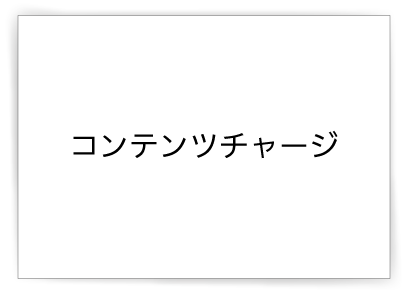
Replacing it with "charge" gives a sense of "accumulating." "Charge" alone feels a bit too simple, so adding a twist to clarify what you're paying for is good.

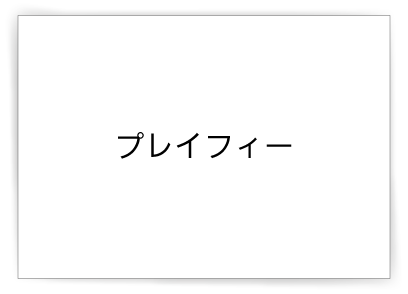
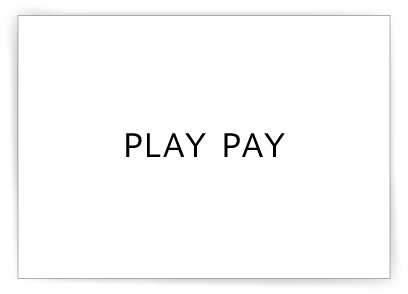
It's good that it clearly states the purpose: "money for fun."


Taking it one step further, defining it as paying for "virtual things."
【2】Convenient
It appeals to the smartphone-like qualities of being simple and easygoing.

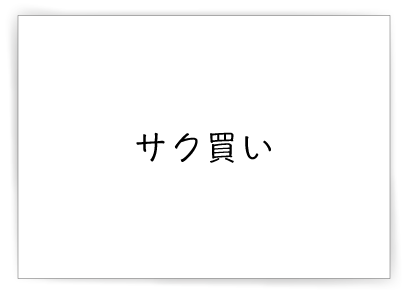

It's easy to understand that it's simple and hassle-free.

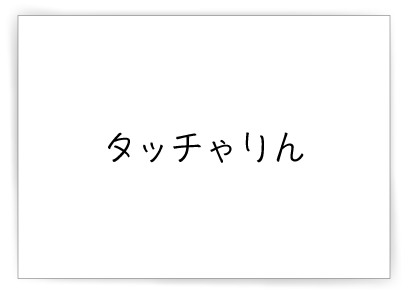
While "cha-ling" feels like money being taken away, "touch-cha-ling" makes the act of "touching and cha-ling" sound fun, slightly mitigating the negative connotation of "cha-ling."
【3】Gratitude to the Creator
Those who challenged the difficult concept that "Paying for in-game items is an expression of gratitude: 'Thank you, game, and thank you, creators, for letting me play...!'" There's a story within the naming.
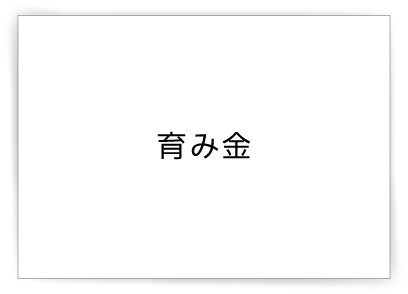
It's a cliché, but it's clear.

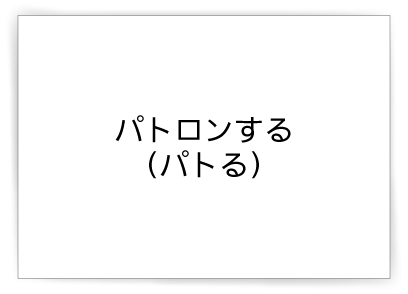
The idea that young people can become patrons is kind of interesting.
【4】Deliberate Self-Deprecation
Just as the term "backlash" exists online, applying words not typically used in everyday life to the internet world can make them trend. Leveraging the negative image associated with in-app purchases, redefining it into a phrase with viral potential.

It's self-deprecating, but people might find that cute bit of venom amusing. It has potential appeal with younger audiences.


It's a deliberate choice, a knowing use of the term. It could work as a form of defiance.

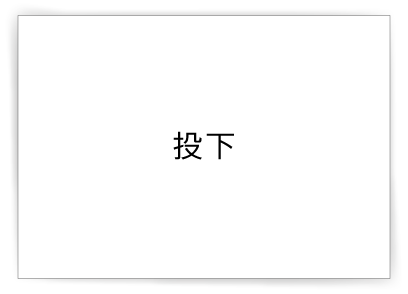
Its structure resembles the word "flame war."



The phrasing has that scent of something that could catch on.
As outlined above, various perspectives on the future of in-app purchases were presented.
In summary, the conclusion is that the direction likely to catch on as a replacement for "microtransactions" is not the straightforward approach, but rather the "deliberate self-deprecation" direction.
The negative image attached to "monetization" is swallowed whole, and the sense of turning even that into a joke or playfulness might resonate with today's younger generation.
■The hidden power of the word "microtransactions" I noticed upon reflection.
Now, while we've always thought of "microtransactions" as having a negative connotation, it seems that a "self-deprecating" usage, similar to the one introduced earlier in [4], is gradually gaining acceptance in some circles.
For example, if you search for yourself on Twitter, you'll find comments like "I ended up paying," but they all seem to be said with a hint of amusement.
These phrases reminded me of expressions like "I haven't slept at all!" or "voluntary class skipping" (a cool way for college students to describe skipping class for personal reasons).
That slight sense of guilt. The feeling of justifying and enjoying something considered bad.
I've heard that health foods actually sell better when they're deliberately made bitter. Is this the same kind of thing?
It made me realize that feeling is definitely there within me too—like "I'm so cool for putting up with the bitterness to get healthy!" or "I'm so awesome for deliberately dipping my toes into this risky in-app purchase!"
There might be a future where "pay-to-win" mechanics run rampant, used as a form of self-deprecation or excuse.
Of course, mechanisms like increasing item variety or placing triggers at moments that make you want to spend money are important. But I felt that communication methods that tickle this seemingly complex user psychology could be a key hint for future smartphone business.
Especially, how to get users to take that "first step" into spending.
Personally, I believe that even if it starts from a place of self-deprecation, a step taken with the feeling of "Thank you for letting me enjoy this much for free. I'll pay to show my appreciation. So please keep entertaining me!" is the best way to build the relationship between users and companies going forward.
Dentsu Inc. Smart Plus will continue supporting better smartphone businesses while valuing these raw, user-centric perspectives!
Thank you for reading this far.
Has your perception of in-app purchases changed a little?
We'd be thrilled if any of the copy introduced here becomes the new language for in-app purchases going forward.


◎What is "Dentsu Inc. Smart Plan"?
It is a planning unit that contributes to the launch, growth, and expansion of businesses on smart devices (such as smartphones, PCs, and tablets).
Our team includes diverse professionals such as strategic planners, communication planners, consultants, copywriters, and producers, all with extensive experience in marketing communications for smartphone games and apps. Furthermore, as each member possesses a deep passion for specific areas, we support marketing activities by not only delving deeply into challenges but also engaging clients with our unique personalities and human skills.
Was this article helpful?
Newsletter registration is here
We select and publish important news every day
For inquiries about this article
Back Numbers
Author

Takeda Satomi
Dentsu Inc.
Creative Planning Division 3
Copywriter/CM Planner
Joined Dentsu Inc. in 2013. I write copy, plan commercials, radio programs, and short films, and while I get frustrated and worry sometimes, I enjoy my work every day. My motto is "Live freely." Received the TCC Newcomer Award in 2014.


